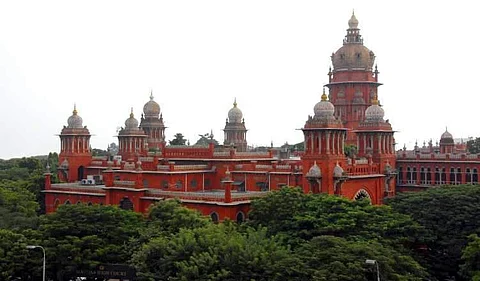

The Madras High Court has upheld a state act for regulating lodging houses for women and children, observing that it not discriminatory as the matter of security and safety of women cannot be compared to that of men.
A group of women had challenged the Tamil Nadu Hostels and Homes for Women and Children (Regulation) Act 2014, contending that the provisions of such a special enactment were discriminatory and unconstitutional.
Their PIL also contended, among other things, that installation of CCTVs would invade the privacy of inmates.
Dismissing the PIL, a division bench of justices S Manikumar and Subramonium Prasad said the enactment was for a larger interest, aimed at the safety and security of women and children, in hostels, lodging houses and homes for children and women.
"When safety and security of children and women in hostels, lodging houses and homes for children and women, are the paramount objects, indeed there should be a exclusive enactment, to the vulnerable sections of the society.The concern of the state cannot be said to be, unrealistic and that special laws are unwarranted," the bench said.
Referring to the contention on discrimination between men and women's hostels, the bench said there is a difference in discrimination without reason and a discrimination with reason.
"Discrimination implies an unfair classification. Keeping in mind the object of the act and the rules framed, this court is of the view that the enactment satisfies the twin tests. There is no unfair classification," it said.
The difference in treating women and children, in the matter of security and safety, cannot be compared to that of men, the bench observed.
"The state government enacting a special enactment exclusively for regulating hostels, lodging houses, homes for women and children, has a rational nexus to the object sought to be achieved and thus there is no discrimination, violating Article 14 of the Constitution," it said.
Upholding the act and the rules framed therein, the bench said the government has enacted it to provide safety and security to women in hostels, lodging houses, and homes for children and women besides regulating such institutions.
"By imposing conditions for registration, licensing, maintenance and to provide managers and security personnel and such others matters connected therewith, in hostels, lodging houses, and homes for children and women, we are of the view that living standards of the women in hostels would not be affected in any manner.The provisions of the act and the rules framed were in the interest of the women and children. On the contention that installation of CCTV cameras would invade their privacy, the bench observed that "no such appliances are to be installed in bedrooms and other places, where privacy has to be maintained".
The bench rejected the arguments that there was no need for managers and engaging security personnel separately in hostels as police were taking care of the safety of the entire population without any cost.
"Functioning of police to maintain law and order, public order and safety to the general public, cannot be compared to that of a manager and security personnel mandated to be employed in hostels, lodging houses and homes for children and women, the vulnerable sections of the society.
"Principles of law, and the difference in law and order, public order, security of the State, have been explained by the apex court in Sanjai Pratap Gupta's case which is squarely applicable to the case on hand," it said.
On the contention that they would have to pay more because of the regulations, the bench said the safety of women was more important than the fees charged for staying in these institutions.
Children suffering from trauma could be at risk of stomach issues later in life
Trekkers help nearly 200 tribal students in Maharashtra develop penchant for reading
Will ask Delhi govt about delay in giving sanction in JNU sedition case: Patiala Court
Too cheesy: Canadian artist builds wall of cheese on US-Mexico border
